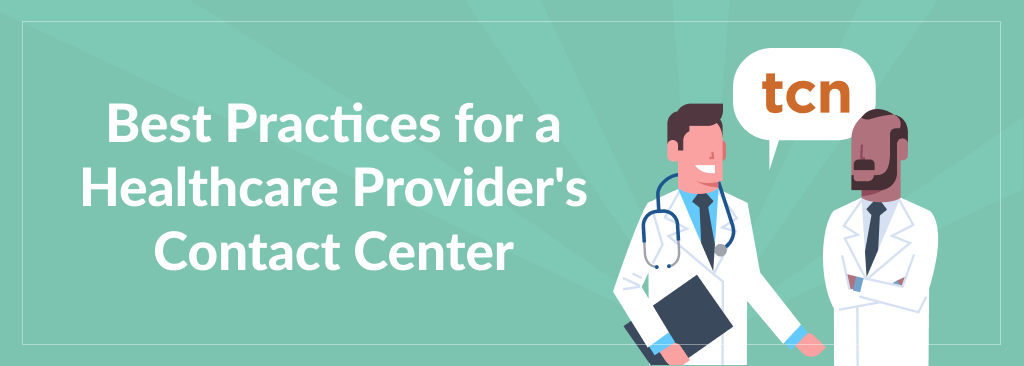Best Practices for a Healthcare Provider’s Contact Center
A healthcare provider’s contact center is often the first point of contact for patients, making it crucial for delivering high-quality patient care and ensuring seamless communication. Leveraging best practices can transform a contact center into a cornerstone of operational excellence and patient satisfaction. Here are the best practices to add to your contact center toolkit:
Embrace technology
Utilizing cutting-edge technology is crucial to enhancing the efficiency and effectiveness of a healthcare contact center. Platforms like TCN’s cloud-based contact center software offer numerous advantages, including scalability, flexibility and real-time data analytics.
Solutions such as Automated Call Distribution, Predictive Dialing and Interactive Voice Response (IVR) systems streamline operations, reduce wait times and ensure patients are quickly directed to the appropriate resources.
Ensure compliance and security
Healthcare providers must adhere to strict regulatory standards like the Health Insurance Portability and Accountability Act (HIPAA) to protect patient information, so implementing robust security measures within the contact center is essential. This includes encrypting data, conducting regular security audits and ensuring that all communication channels are secure. Training staff on compliance protocols and confidentiality is also important in maintaining patient trust and avoiding costly breaches.
Focus on staff training and improvement
A contact center’s effectiveness heavily relies on its staff’s proficiency. Some training programs that cover technical skills and soft skills like empathy, active listening and problem-solving can significantly improve patient interactions. Additionally, regular refresher courses and upskilling opportunities keep the staff updated on the latest practices and technologies and ensure continuous improvement in service delivery.
Leveraging data and analytics
Reporting and analytics are a powerful tool for optimizing contact center operations. By analyzing call data, patient feedback and other relevant metrics, healthcare providers can gain valuable insights into performance trends and areas needing improvement. Tools provided by platforms like TCN allow real-time monitoring and reporting, enabling managers to make data-driven decisions that enhance patient experience and operational efficiency.
Prioritize patient communication and care
Effective communication is at the heart of a thriving contact center. Implementing multichannel communication strategies allows patients to reach the contact center through their preferred channels, whether it be phone, email or chat. Consistent and clear communication and timely follow-ups ensure patients feel heard and valued. Additionally, patient portals and automated reminders can help reduce no-shows and improve appointment adherence.
At the core of every healthcare contact center should be a commitment to patient-centered care. This involves understanding and addressing each patient’s unique needs and concerns. Personalizing interactions, showing genuine concern for patient well-being and providing comprehensive support throughout the patient journey fosters trust and satisfaction. Training staff to adopt a patient-first mindset can transform routine interactions into meaningful engagements that enhance overall care quality.
Healthcare provider’s best practices
A healthcare provider’s contact center is pivotal in the overall patient experience and operational efficiency. By embracing advanced technology, ensuring compliance, focusing on staff training, leveraging data, enhancing communication, committing to continuous improvement and prioritizing patient-centered care, healthcare providers can elevate their contact centers to new heights. These best practices improve patient satisfaction and contribute to healthcare organizations’ long-term success and sustainability.
